Fire safety is a critical aspect of protecting lives. In short, we must avoid the devastating effects of a fire. For this reason many governments mitigate fire risks by implementing comprehensive fire safety legislation. However, navigating through the complex web of fire safety regulations can be difficult. In addition, understanding the compliance requirements can be a daunting task for business owners and Health and Safety Managers.
This guide, Demystifying Fire Safety Legislation, provides a comprehensive resource that simplifies and clarifies the key aspects of fire safety legislation. It is useful whether you’re a business owner, manager or someone interested in understanding fire safety regulations. It will unravel the complexities and help you achieve compliance whilst protecting your business.
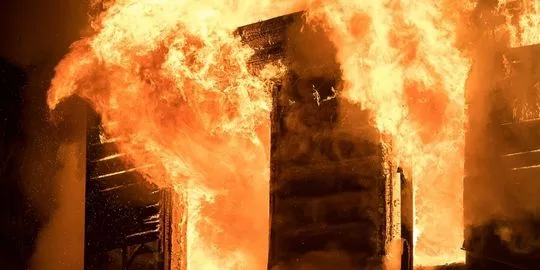
Understanding Fire Safety Legislation
Firstly, fire safety legislation is a crucial component of ensuring the well-being of individuals and properties in the event of a fire. In fact, this legislation encompasses a range of laws, regulations and standards. All of these dictate the requirements and responsibilities related to fire prevention, preparedness and response. By understanding fire safety legislation, individuals and organisations can effectively implement measures to minimise fire risks and protect lives and property.
Secondly, one key aspect of understanding fire safety legislation is familiarising oneself with the specific laws and regulations applicable. Each country or region will have its own set of rules and requirements. In general, these are outlined in building codes, fire safety acts or local ordinances. Subsequently, these documents outline the legal obligations and standards that must be followed to ensure compliance with fire safety regulations.
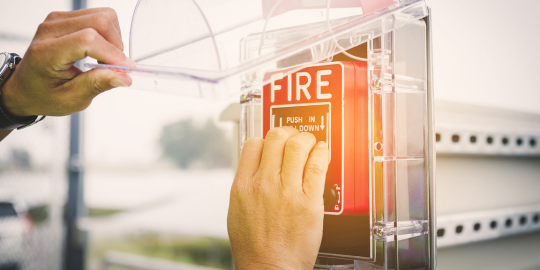
The Importance of Fire Safety Compliance for Business Protection
Fire safety compliance is of paramount importance for businesses. Legislation plays a crucial role in protecting our organisations. In addition, fire incidents can have devastating consequences. Without doubt, we could face loss of life, injuries, extensive property damage and financial losses. Thus, adhering to fire safety regulations and implementing effective fire prevention measures is essential. Especially when minimising these risks and ensuring the continuity of business operations.
Implementing fire safety measures is a proactive approach that demonstrates a commitment to the well-being of all stakeholders. For instance, we must conduct regular fire risk assessments, install and maintain fire detection and suppression systems, ensure proper emergency exits and evacuation routes and provide adequate fire safety training to employees. By investing in these preventive measures, businesses can significantly reduce the likelihood of a fire incident occurring and minimise its potential impact.
Fire safety compliance extends beyond protecting human life. In brief, it safeguards the continuity of business operations by minimising downtime and financial losses. In fact, a fire can lead to significant disruptions. For example, damage to equipment, loss of data and interruption of services. Overall, the cost of recovery and rebuilding can be astronomical, not to mention the potential loss of customers and business opportunities.
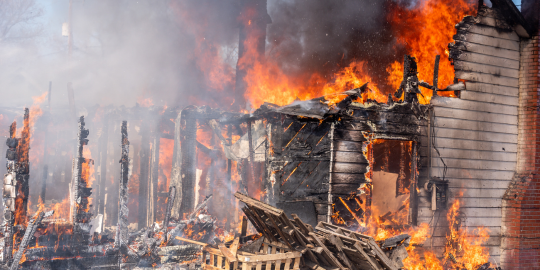
Key Fire Safety Laws and Regulations
Fire safety regulations in the United Kingdom are designed to ensure the safety of buildings and lives by protecting people from the risk of fire. The key legislation that governs fire safety in the UK is the Regulatory Reform (Fire Safety) Order 2005. This act is commonly known as the Fire Safety Order.
Regulatory Reform (Fire Safety) Order 2005
The Regulatory Reform (Fire Safety) Order 2005 is a piece of legislation in the United Kingdom. It first came into force on 1st October 2006. Also, it is commonly referred to as the Fire Safety Order or simply the RRO. The order aims to improve fire safety in non-domestic premises and the common areas of multi-occupancy buildings.
The Fire Safety Order applies to all non-domestic premises in England and Wales. For example workplaces, shops, offices, factories, warehouses, schools, hospitals, places of worship, and hospitality venues. It places the responsibility for fire safety on the “responsible person” for the premises, who is usually the employer, owner, or occupier.
Key provisions of the Regulatory Reform (Fire Safety) Order 2005 include:
- Fire Risk Assessment
- Fire Safety Measures
- Staff Training
- Cooperation and Coordination
- Record Keeping
- Enforcement and Penalties
The Fire Safety Order introduced a risk-based approach to fire safety, focusing on prevention and ensuring that fire safety measures are proportionate to the level of risk. It simplified and consolidated existing fire safety legislation, replacing several older regulations with a single framework.
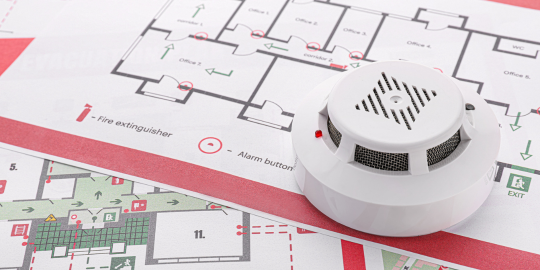
Fire Safety Responsibilities of Business Owners and Managers
Business owners and managers have crucial responsibilities when it comes to fire safety within their organisations.
Complying with Fire Safety Regulations
As a business owner, it is essential to comply with the fire safety regulations specified in the Regulatory Reform (Fire Safety) Order 2005. Fire safety regulations are put in place to prevent and minimise the risk of fires, as well as to ensure that appropriate measures are in place in case of an emergency.
Conducting Fire Risk Assessments
Business owners and managers must ensure fire risk assessments are carried out by a competent person. This risk assessment will identify potential fire hazards and recommend actions to reduce and manage the risk of fire. This assessment should consider factors such as building layout, emergency exits, fire detection systems, flammable materials, electrical systems, and any other fire risks specific to the business.
Take All Relevant Fire Safety Actions
Following the results of your fire risk assessment, it is important to take actions to manage the risk identified in your risk assessment. This means ensuring the correct fire detection and prevention equipment is in place and is suitable for the risks identified.
Whether you require additional emergency lighting, heat and smoke detectors or a particular fire extinguisher kit for specifically high-risk activities in your organisation. All of the control measures and actions recommended in your fire risk assessment must be implemented and well maintained.
Maintain High Standards of Fire Safety
It is everyone’s responsibility to ensure they are aware of the fire risks posed by the environment they operate in. Fire training is an essential part of this fire prevention strategy, as is a culture of fire risk awareness. Cooperating with fire safety measures is the responsibility of every member of staff but this behaviour starts with the business owners and managers.
It is therefore imperative that fire safety training is a key part of your staff training, alongside your other health and safety training. The best way to make your fire safety training effective is to implement it into day-to-day activities and encourage behaviours that promote a fire safety awareness culture.
Record-keeping
As part of your responsibilities under the fire safety legislation in the UK, you must keep accurate and up to date records of your fire risk management. This includes keeping all the signed and agreed fire risk assessments for your premises. Alongside a record of all the actions taken to manage the risks identified in the risk assessments. You should also keep the training records of staff in terms of fire safety and all the service certificates for the fire prevention equipment you are operating such as smoke alarms, fire extinguishers and so on.
Enforcement and penalties
In the UK, the local fire and rescue authority will visit your premises to check your fire risk assessment and fire prevention measures. The local fire safety officers will help you understand the fire safety legislation and how you can comply with it.
They are also afforded the power to take action if they think your fire safety measures are not adequate. An example of this would be them issuing you an informal notice suggesting safety measures that should be implemented in your premises.
Alternatively, they could give you a formal fire safety notice. But they are also there to help and advise businesses on how to fix the problems detailed in the notice.
If your premises has a high fire safety risk identified, the local fire and rescue authority could issue you with an alterations notice. This would require you to make changes to your premises to bring the risk of fire down to an acceptable level and ensure that risk is fully managed.
They could also issue you with an enforcement notice if they find a serious fire safety risk that’s not being managed. The enforement notice will state what improvements are needed and by when.
The most serious and severe type of notice the local fire authority can issue and enforce is a prohibition notice. These take effect immediately if the fire and rescue authority deem the risk of fire so great that access to your premises needs to be prohibited or restricted until safety measures have been implemented.
Fire Safety Training
It is imperative to provide training for new staff and to inform all existing employees of any emerging fire hazards. It is recommended to conduct a minimum of one fire drill annually, documenting the outcomes. These records must be maintained as integral components of the fire safety and evacuation strategy.
Fire Doors
In January 2023, new fire safety regulations were introduced in England, along with updates to fire door guidance. For fire door guidance, click here
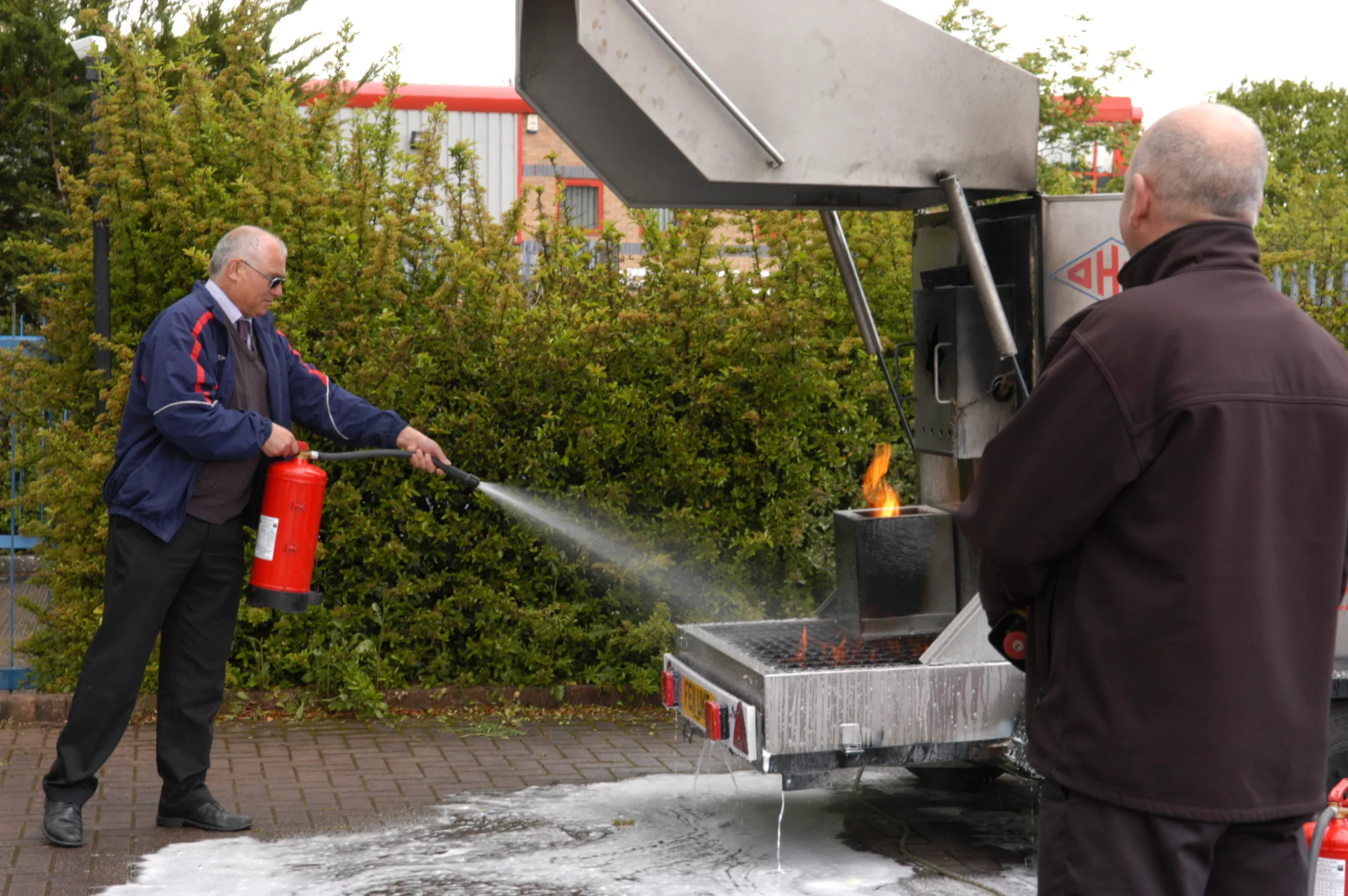
Consult the Experts
The law can seem complicated but the most important thing to remember with fire safety legislation is that it is the difference between life and death.
If you are uncertain where to start, or if you are concerned about the fire safety in your working environment in any way, please consult an expert.
There are Fire Consultants and trainers who are experts in fire safety and fire regulations, such as those who work at OHEAP.
To consult an expert about your fire safety, and to conduct a fire risk assessment for your premises or working environment, contact us today on 0330 999 8786.